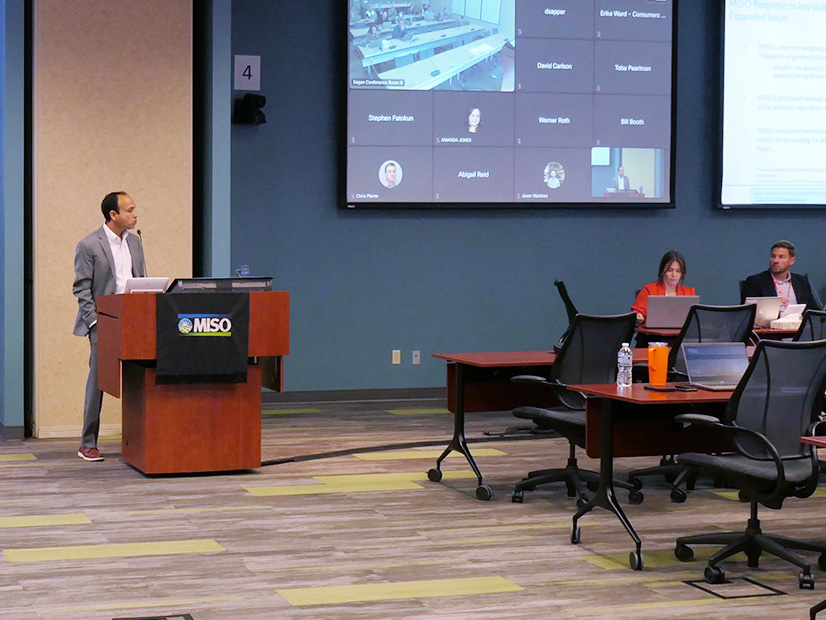
CARMEL, Ind. — MISO is determined to file with FERC by the end of March to introduce a probabilistic capacity accreditation that’s controversial among stakeholders.
MISO stakeholders continued to lobby for a deferral during a Feb. 28 Resource Adequacy Subcommittee meeting, again telling the RTO it hasn’t shared enough information on its loss of load-oriented accreditation style. (See MISO Set on March Accreditation Filing, Stakeholders Push for Slowdown.) A filing in March seems destined to gather several protests.
But Senior Manager of Market Design Neil Shah said MISO has now shared enough data from its analyses to give stakeholders a “broad indication” of their future capacity credits to adjust generation plans accordingly.
“The filing needs to happen now for stakeholders to make those adjustments,” Shah said.
MISO doesn’t intend the accreditation to take effect until the 2028/29 planning year.
Shah said “the beauty of” MISO’s method is that it measures the reliability contribution of all resources across “hundreds and hundreds” of simulated risky hours.
Under the new method, generators’ capacity credits would be determined by a combination of individual past performance and resource-class average performance during hours with tight conditions and modeled loss-of-load hours for different types of generation. Most resources’ credits would shrink under the new accreditation. Resources would be divided by fuel type: gas, coal, hydro, nuclear, energy storage, pumped storage, wind and solar. MISO at first didn’t commit to listing resource types in its tariff filing with FERC.
Shah likened MISO’s accreditation change to his homeowner’s insurance policy recently increasing by a few hundred dollars based not on him, but on his neighbors filing more claims recently. He said his insurer took the growing claims as proof of rising risk in his neighborhood and reassessed. MISO, Shah said, is no different with this new accreditation direction.
Many MISO stakeholders have argued the loss-of-load accreditation would inject too much uncertainty into the MISO market, disrupting integrated resource plans and investment decisions. At the RASC meeting, some said they don’t have adequate insight into how capacity credits would differ by resource type and questioned whether MISO’s proposed resource classes would sufficiently represent all types of resources in MISO.
Shah said MISO is prepared to make a future filing if new technology necessitates the RTO add new resource classes but said MISO has landed on a “good representation of resources classes” in the footprint today.
Shah also noted that during the three-year transition period, MISO wouldn’t apply the accreditation but would publish indicative accreditation results for resource classes, as well as anticipated local reliability requirements and planning resource margin requirements based on the direct loss-of-load accreditation method. MISO wouldn’t share unit-level capacity values publicly; market participants would need to request those from the grid operator.
MISO has said the new accreditation would better ensure seasonal reserve requirements are met, shape long-term investment and retirement decisions “by accurately representing the capacity value of a resource in the prompt year,” and incentivize resources to show up during times of the greatest system need. It has characterized the new accreditation style as a “consistent accreditation methodology for all resources, capturing the reliability contribution during times of highest risk.”
MISO’s Zak Joundi has said MISO members would “have plenty of time to adjust” to the new rules.

